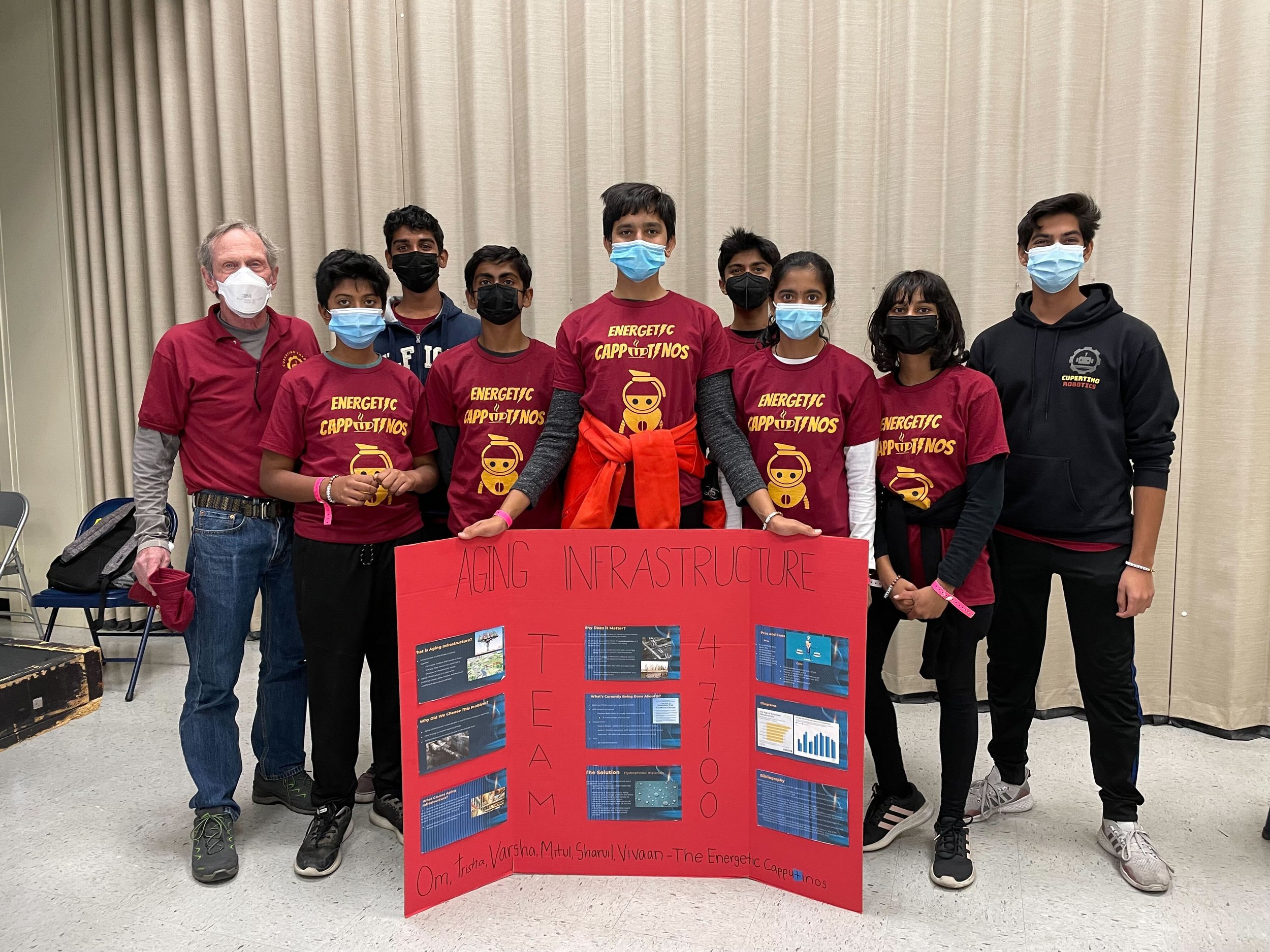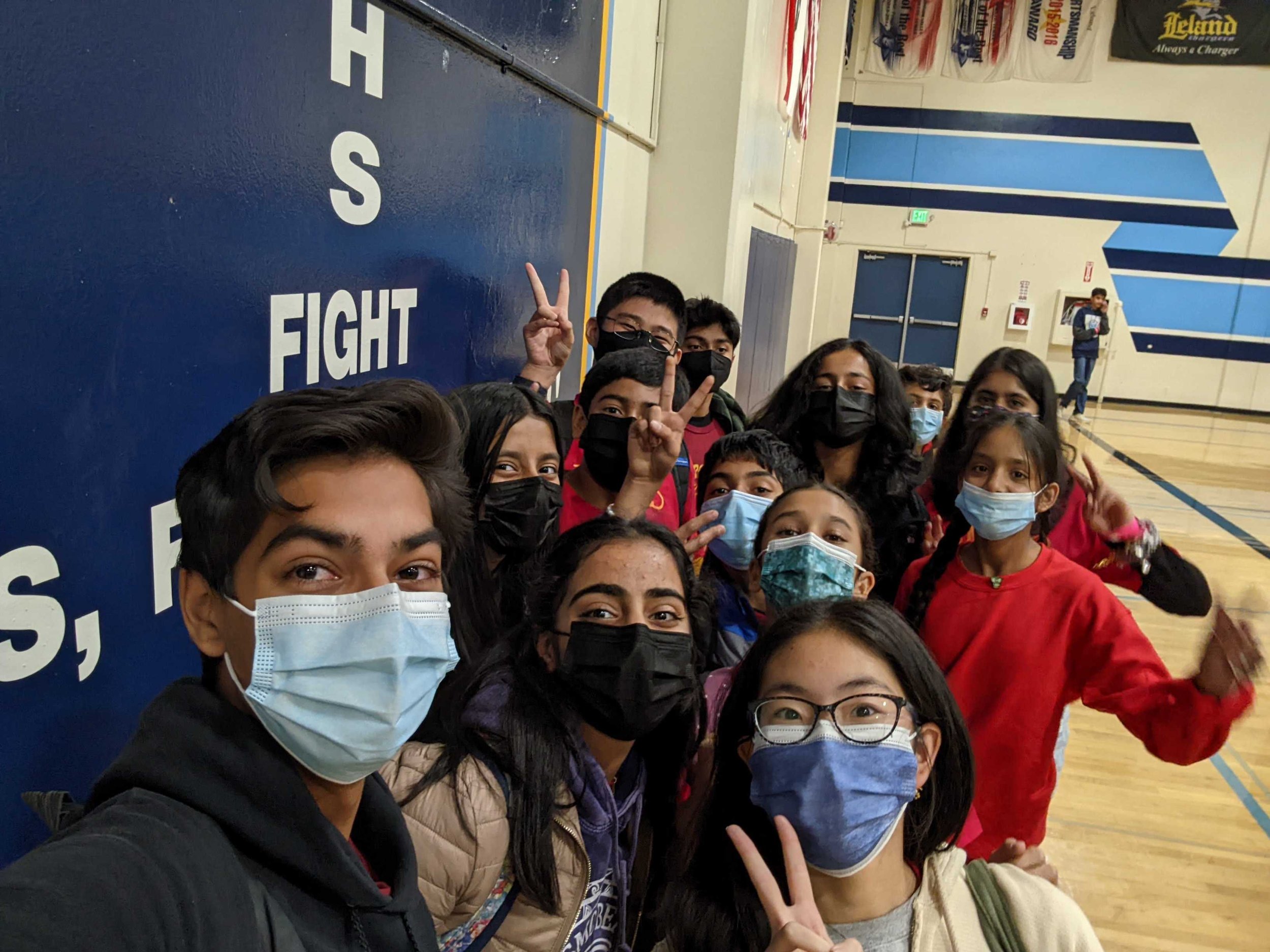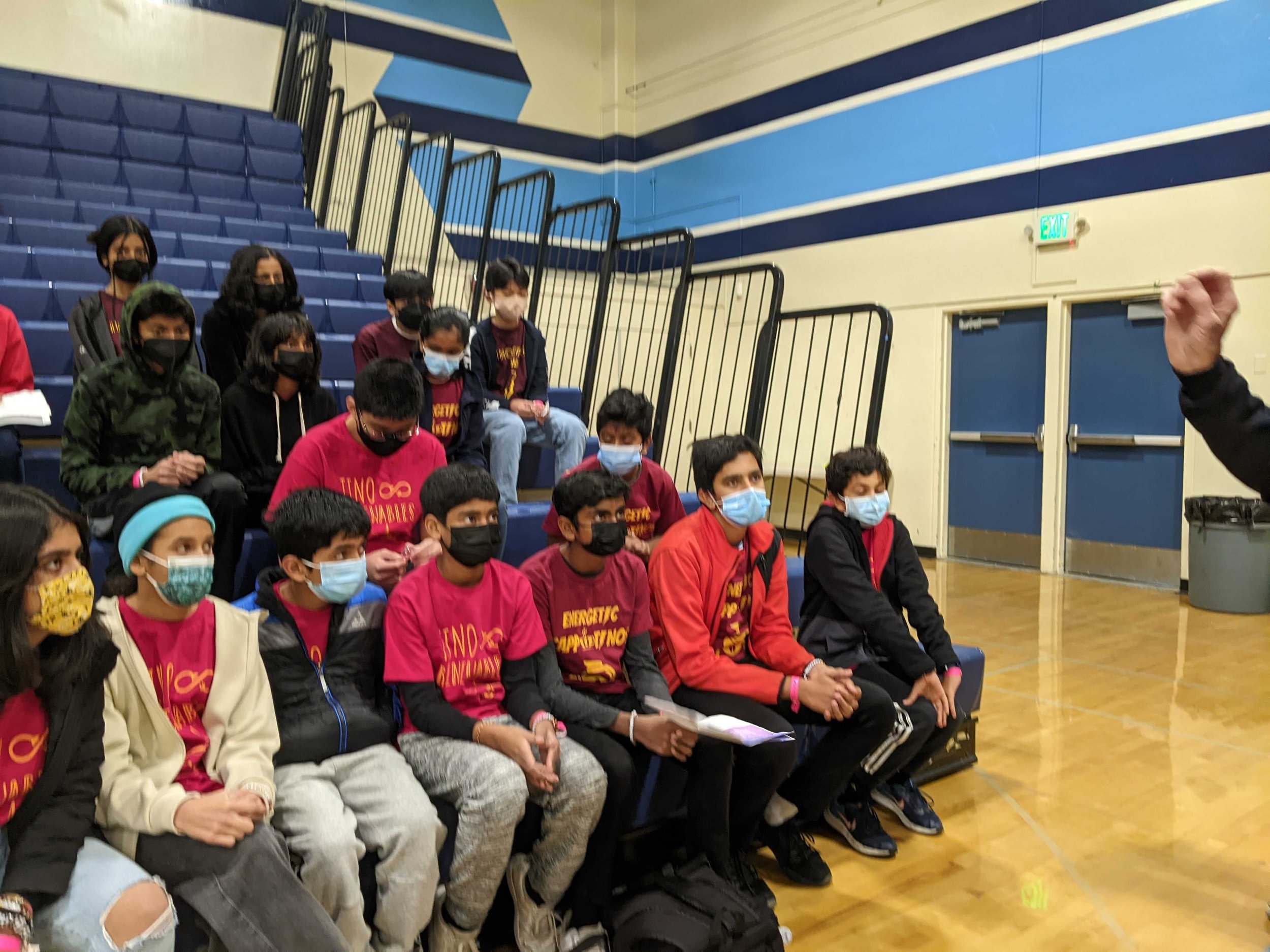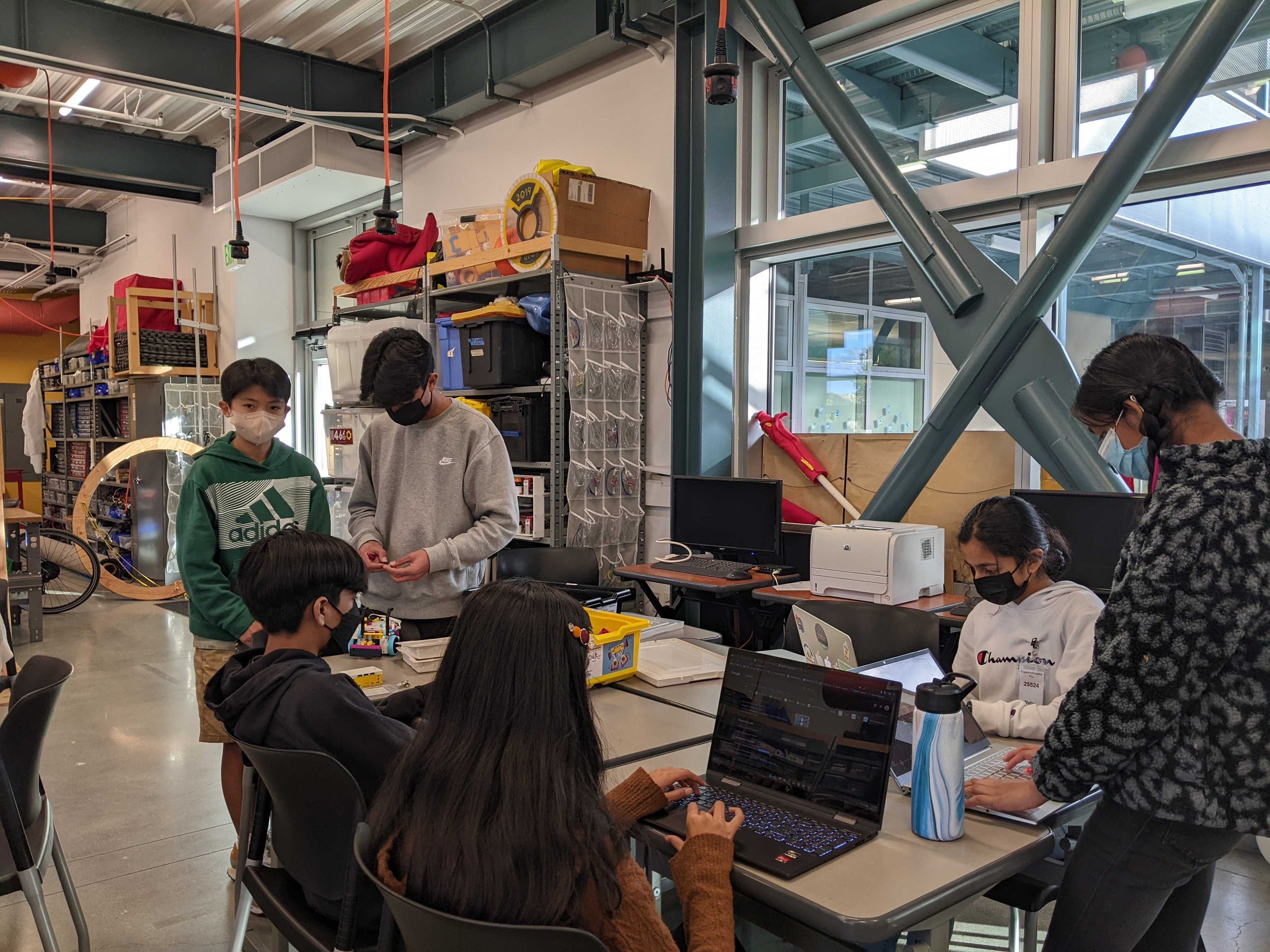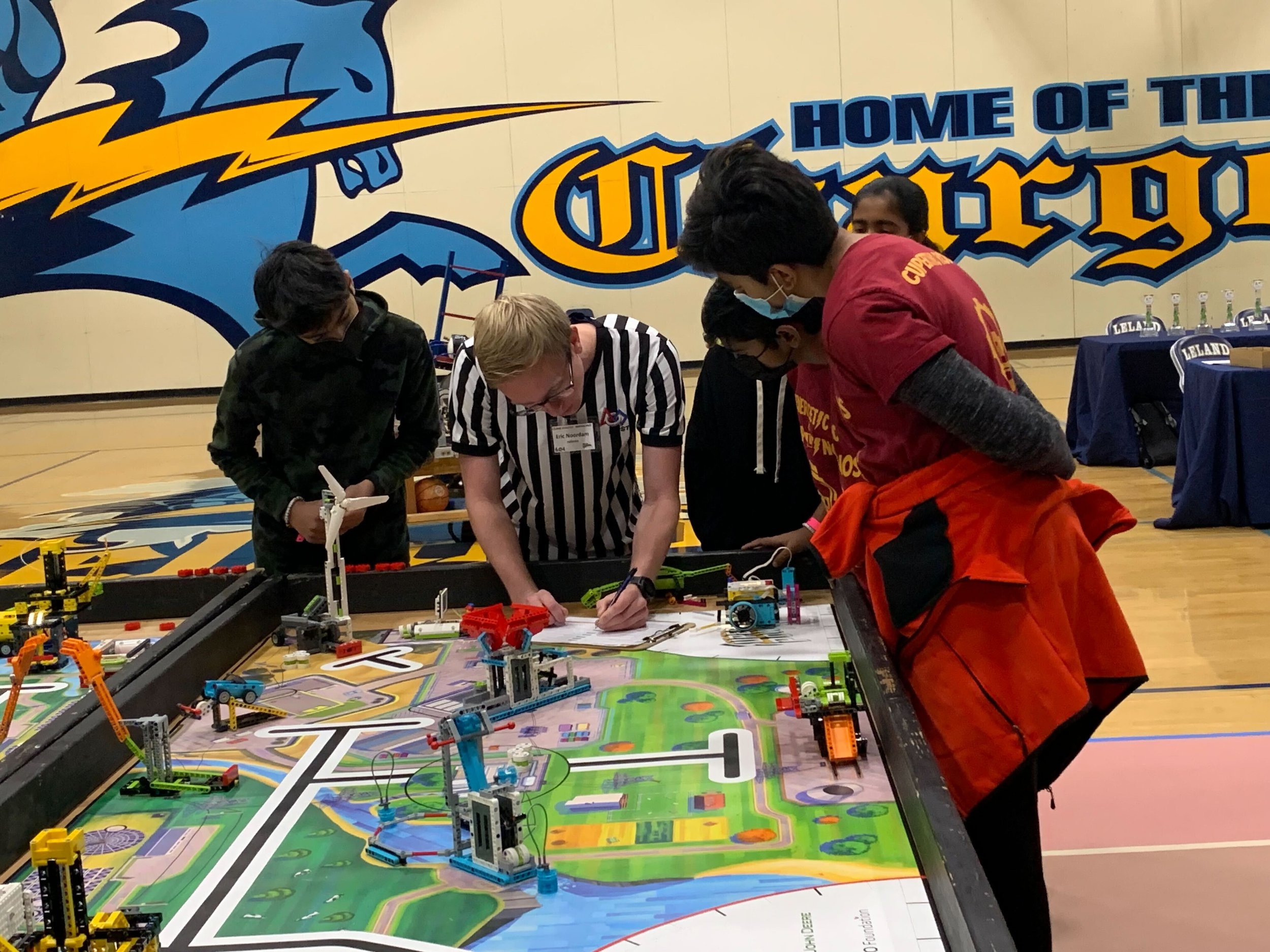2022-23 FLL Update
This FLL season, Cupertino Robotics hosted four FLL teams: 25523, 25524, 32253, and 47100. Each team consisted of hardworking students from local middle schools who worked together to develop a fully fleshed robot and an Innovation project. The Innovation project required the team to look into an issue in their communities and propose a solution for it. Each year a new challenge is released and the FLL robots must be designed and coded to accomplish the annual challenges.
Team 25523, Tino Roblocktics, consists of 6 members. Starting in August, the team began attending regular meetings twice a week. They continued to develop their robot and enhance its efficiency until their competition in early November. The members of 25523 began the season by familiarizing themselves with micropython and developing a game strategy. Gaining a basic understanding of python was a struggle at first, but they succeeded with the help of their mentors. By the end of the season, 25523 was able to complete 6 missions. Additionally, through their innovation project, 25523 explored how to improve the reliability of nuclear power.
Team 25524, Tino Spark, was able to complete 7 missions and achieve a maximum of points at 200 points. The design process started off with first building the chassis of the lego robot and then separately designing attachments to complete the missions. The chassis had a ball and socket wheel and also had a color sensor. One issue faced was in the mech attachments as it was too weak and kept breaking. To mitigate the issue, hardware added additional pieces to provide extra support. On the software end the team struggled with being able to stop the line following on time. However, they were once again able to fix the problem by checking if the light threshold was past a certain value. The team’s innovation project was about making solar panels more accessible by designing a cover for them that would make them easier to maintain.
Team 32253, Tino Renewables, started off the season strong and held onto that mentality as they progressed. Throughout designing and coding their robot, the team ran into some struggles. There was much inconsistency between the runs and communication within the team was occasionally not enough to convey the right information. However, like every good team, they were able to find solutions for these problems. The team worked to align the robot against objects in the game such as walls or other flat surfaces so that it would be easier to maintain some consistency in their runs. They also started to establish check-ins more often with all the team members to keep everyone on board with any updates. For their innovation project, the team explored carbon capture and used their chemistry knowledge to present a proposal that would make carbon dioxide safe for the environment.
Team 47100, The Energetic Capputinos, did an amazing job at the FLL tournament at Gunn High School. They scored 255 points which put them 8th out of 24 teams overall. They completed 8 missions, using efficient methods to navigate around the field. The team engineered with efficiency, understanding the pros and cons of different robot designs. Originally, they wanted to make a scooper and multiple claws that could lift items on the field. As they designed this, they realized they could use less complex mechanisms that do the same tasks and allow for more robot mobility. The team ended up having an arm mechanism to push the latches on the missions and an axle containment to hold energy units as they moved around the field. They initially struggled to work as a team but throughout the season, there was more collaboration and stronger communication, showing gracious professionalism. The team’s innovation project was very well researched and a learning experience itself. The team presented the active problem of aging infrastructure and why it wastes energy. They explained why their solution of using hydrophobic materials is a better way to reduce it. The mentor's job wasn't to help the kids to build the robot itself but to create a learning environment for them so they can learn from their failures. This experience not only benefited the kids but also impacted the mentors.
